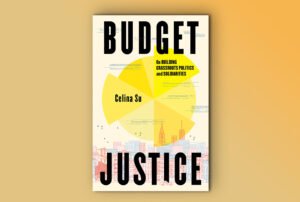
June 2, 2016; WBUR
A year ago, NPQ wrote about a pioneering program in Gloucester, Massachusetts that has been tackling the opioid epidemic with a unique approach. Gloucester Police Chief Leonard Campanello initiated the “Angel Program” to provide addicts with treatment rather than a jail sentence and to help break the cycle of abuse, crime, and incarceration that often accompanies drug use. In the last year, as opioid deaths have continued to rise, the Angel Program has taken in 400 individuals while inspiring police departments across the country to adopt similar programs.
Under the program, the Gloucester Police Department allows opioid drug users to turn in their illegal drugs; then, instead of arresting the individuals on possession charges, the police department assigns an “angel” who helps users find and enter into treatment.
“We certainly didn’t expect the attention that it’s gotten,” said Campanello. “We wanted to create something that would be a safe haven for the city of Gloucester, but we feel very responsible for where it’s gone and how it’s grown.”
According to Campanello, preliminary program data show it is working. In 2015, there were five fatal drug overdoses in Gloucester within the first five months. The first five months of this year had only one overdose. Drug crime has fallen 27 percent over the past year as well. “It appears that crimes that are ancillary to the disease of addiction—the crimes of desperation: shoplifting, larceny, smash and grabs—have declined since the beginning of the program.”
Moreover, as noted by Campanello, the program also makes more economic sense than the traditional jailhouse trajectory. It costs the program $55 per individual treatment, whereas it costs $220 to send a low-level drug user through court. (And the money used is drug forfeiture money, not general tax revenues.) Campanello also has established relationships with treatment providers around the country, some of which have offered scholarships for their services.
All those nice numbers shouldn’t imply that the past year has been a cakewalk. The program is still evolving and changing as it runs into obstacles. For example, the program no longer takes entrants to the emergency room first but rather sends them directly into treatment. Though no reason is provided by WBUR, the reason for bypassing the ER is likely due to the costs incurred.
Sign up for our free newsletters
Subscribe to NPQ's newsletters to have our top stories delivered directly to your inbox.
By signing up, you agree to our privacy policy and terms of use, and to receive messages from NPQ and our partners.
As we noted a year ago, there has also been pushback from officials concerned about the legality of the program. Essex County District Attorney Jonathan Blodgett has said that the police do not have the legal discretion to promise any kind of amnesty or immunity to individuals caught in possession of drugs. One of the attractions of the program is the police department guaranteeing that individuals will not be subject to prosecution. (Campanello countered to WBUR that the police have always had such discretion.)
Moreover, at least one case has caused some concern. A Salem district court judge chastised the Gloucester police after Cassandra Miller-Brown, 29, was released under the assumption the department would shepherd her into a treatment program. Instead, she almost fatally overdosed in a restaurant bathroom the next day. According to Salem News, the judge released the woman under the pretext that a treatment center was ready to take her in immediately, whereas, according to reports, Gloucester police only began looking for a center when the judge made the decision to release her. That delay nearly cost one of the program’s participants her life, illustrating the tenuous nature of the program’s work. The woman had been part of the Angel Program, only to leave and return to using. After she was arrested once more on an unrelated charge, she was to reenter the Angel Program.
“Honestly, I think it’s messed up,” said Miller-Brown to the judge after her near overdose. “They said they had a program and they didn’t and I almost died.” The judge ensured she would be entered into a program, made treatment a condition of her court case, and apologized for letting her down by not getting her into a treatment facility as she was originally promised. Campanello’s response was, “Unfortunately, we are dealing with a terrible disease, and there is always the chance that miscommunication or misinformation will permeate the process. That is why we treat every situation equally, and we treat every participant equally.”
An analysis by the Boston School of Public Health of 200 of the over 400 participants in the program found that 70 percent completed the program. However, of the 100 people willing to answer the question of whether they returned to using drugs after initial contact with police, 40 percent said they had.
Still, BU public health professor David Rosenbloom finds these numbers encouraging. “I think we are ultimately going to see that people who receive the kind of help that they’ve received by going into a police station, of all places, where people have treated them with respect and dignity—we think that people going through a program like that, with continuing support, are more likely to be successful in entering recovery than people who don’t get this kind of help.”
The past year has brought some significant shifts in drug policy and law enforcement efforts, with some similarities to the Angel Program. The most notable is the trend toward an emphasis on rehabilitation as opposed to incarceration, which was policy in place for decades across the country. In March, the governor of Massachusetts signed a bill mandating hospitals provide substance abuse evaluation for anyone who enters the emergency room showing signs of a drug overdose. President Barack Obama has also made it a priority to address the opioid epidemic in his last year in office. In part, he wants increase access to medication that assists with recovery and eases the process so individuals are less likely to relapse. A police department in North Carolina specifically references the Angel Program as inspiration for its own “Hope Initiative,” and just this week, a police department outside Chicago opened a program nearly identical to the Angel Program.
As might be expected, these programs will face challenges, but the essential premise of their approach to the opioid epidemic is heading in the direction the country needs to be moving.—Shafaq Hasan











